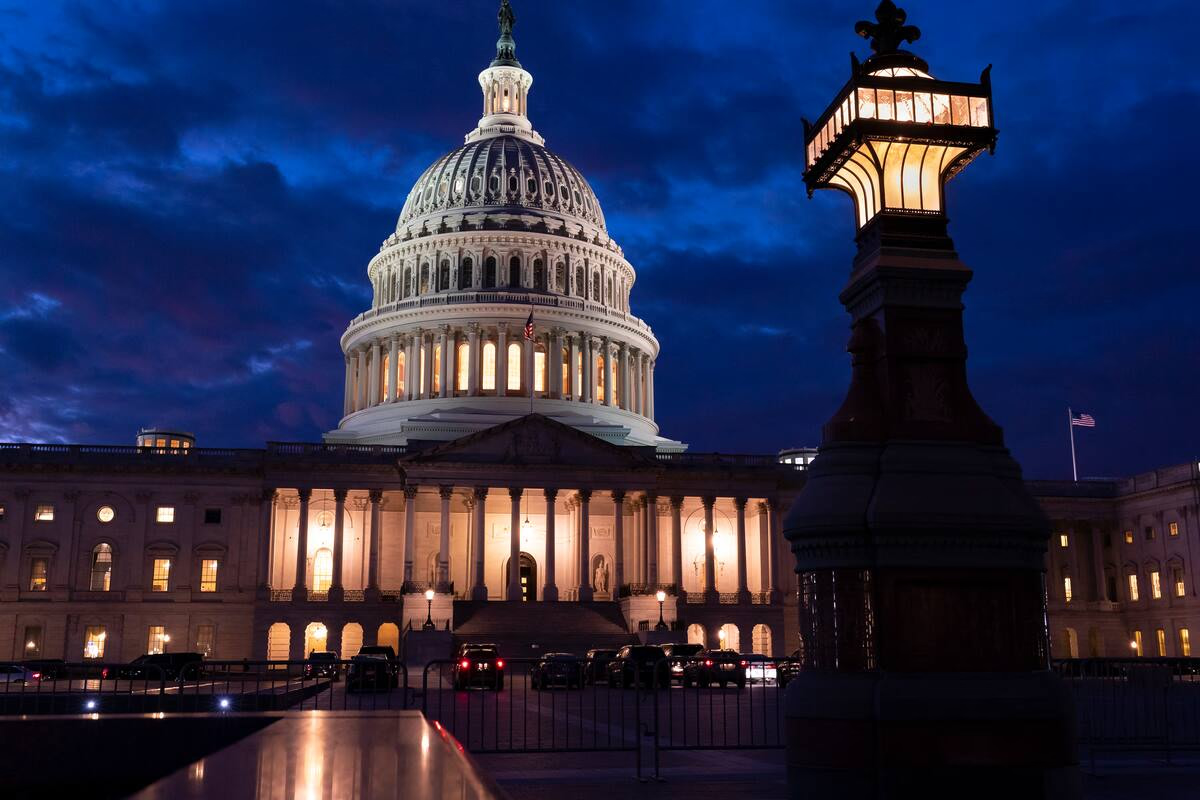
U.S. Senate Reaches Bipartisan Deal to End Record-Long Government Shutdown
The U.S. Senate approved a bipartisan agreement late Sunday to fund the federal government until January 30, ending the 40-day shutdown, the longest in history.
November 10, 2025 - 01:49 AM ET • 2 min read
The U.S. Senate reached a bipartisan agreement late Sunday to fund the federal government and end the longest shutdown in the nation's history, which had lasted approximately 40 days since October 1. The legislative measure, which quickly cleared a key procedural hurdle, provides funding through January 30 and includes specific provisions addressing the status and compensation of federal workers who were impacted by the closure.
The agreement was the culmination of weeks of intense negotiation and followed 14 previously failed attempts to secure the necessary majority. The breakthrough occurred when a new proposal, presented by Republican leadership, successfully convinced eight moderate Democrats and independents to join the Republican caucus, securing the 60 votes required to overcome the Senate's filibuster rules. Among the key Democratic negotiators who supported the measure were Senators Tim Kaine, Angus King, Jeanne Shaheen, and Maggie Hassan.
The short-term spending bill is designed to finance the federal administration until at least January 30. A critical element of the compromise was the decision to separate the contentious issue of extending Affordable Care Act (ACA) tax credits, which are set to expire on January 1. The vote on the ACA credits has been scheduled for December, effectively decoupling it from the immediate need to reopen the government.
For the hundreds of thousands of federal employees affected by the closure, the agreement mandates several protections. It ensures that all employees who were furloughed or forced to work without pay during the shutdown will receive full retroactive compensation. Furthermore, the measure requires the re-hiring of federal employees who had been laid off during the closure and prevents the Office of Management and Budget (OMB) from implementing any further mass layoffs before the January 30 funding deadline.
The shutdown, which began on October 1, had suspended many non-essential government services and created significant economic uncertainty. Disputes leading to the closure centered primarily on healthcare subsidies, food benefits, and the status of federal employees following mass dismissals.
The Senate advanced the budgetary bill late Sunday in a 60-40 procedural vote. If the legislation is approved by the House of Representatives (where the Republican majority is narrow) it will be sent to the President for signature, officially ending the closure. President Donald Trump, speaking to reporters upon his return to the White House, indicated optimism, stating, "It seems we are close to ending the shutdown."